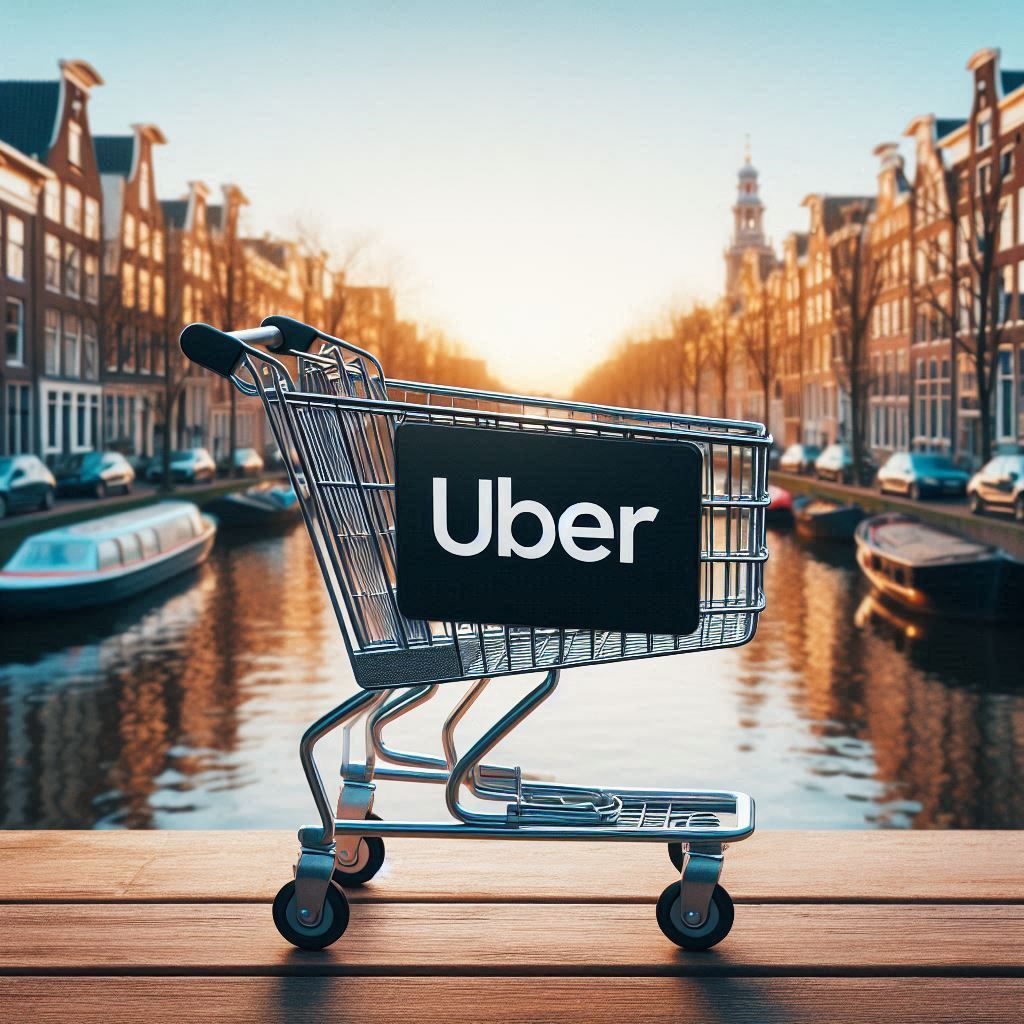Influencer interview: Pim De Weerd, Global Commodity Manager Mobility
17 February 2020 / Africa
Pim De Weerd, Global Commodity Manager Mobility, is responsible for managing all ground transportation at Royal Philips. In 2012 he introduced a global fleet policy and now manages a multimodal mobility program for more flexible, sustainable and cost-efficient mobility solutions. Pim spoke at a travel industry event at the Uber Headquarters in Amsterdam, where he discussed how innovation and sustainability are key to Philips. We’re delighted to share his insights and tips on mobility management.
Let’s hear it from him:
I started in 2007 as a Market Procurement Manager for Philips Indirect Procurement in the Netherlands and Leased Cars was part of my scope. In 2012 I became the Global Commodity Manager for Leased Cars and focused on further optimising the global Philips fleet, where I ran multiple fleet optimisation projects.
It was at the end of 2016 when I introduced the strategy to move from fleet to mobility management. By January 2017 it was official and I became globally responsible for all ground transport commodities in order to start the transformation.
Before my procurement role in Philips, I had no serious interest in cars. I did not save up to buy my first car—I spent all my money on travel, from backpacking in Asia to game drives in Africa. Next to these exotic trips, Ibiza is my second home. I’ve been going here every year for more than 20 years. This is where I celebrated many life events with family and friends.
Global mobility management
1. When it comes to managing mobility on a global level, what’s your biggest priority?
The key priority in making the transition from fleet to mobility management is stakeholder management—getting all stakeholders aligned on the common objectives.
2. What do you love most about the work you do?
The opportunity to implement new innovative solutions and co-create initiatives with suppliers, peers and internal stakeholders.
3. What mistakes could people make when implementing mobility management? What are the main challenges you have personally faced?
Do not sell it as a solution to your internal stakeholders. First, listen to their concerns and priorities. When I started I was very focused on my pitch for moving towards mobility management. That did not work. You have to invest significant time in the relationships with your key stakeholders to become their trusted advisor.
4. What are your secrets to communicating and making sure key decision-makers listen? How do you influence decisions at the point of purchase?
Prepare and plan interviews with all your key stakeholders. Prepare a list of questions to understand their priorities and concerns. Based on their answers, you can find out where there are common objectives and which concerns you need to solve in order to get their support.
Pim De Weerd, Global Commodity Manager Mobility, Philips“The interview is a very powerful tool. Your stakeholders really appreciate that you take the time to listen to them and it helps you to better understand the business impact. By building this trusted relationship, you are in a much better position to influence key decision-makers.”
5. You have several years of experience managing fleets and mobility. What major changes have you noticed over this period?
The major changes are electric, connected, autonomous and shared cars. This is bringing so many new innovative and more sustainable solutions in the mobility industry. With electric cars we can realise a zero-emission fleet, while with connected and autonomous cars we can significantly improve safety and costs. Car sharing will bring us much more flexibility and optimises the usage of the car.
6. How do you source new mobility solutions?
Through supplier innovation events. Suppliers receive the request to respond to a mobility challenge. We then invite the best proposals to pitch during the event where together with our key stakeholders we decide whether to invest in a new solution.
7. You spoke about sustainability at an industry event at Uber. Which initiatives have the biggest impact to reduce your carbon footprint?
Shifting from air to rail and the shift towards fully electric vehicles have a big impact to reduce our carbon footprint. The biggest impact comes from not travelling at all. We therefore have other initiatives in place to optimise the usage of virtual meetings.
8. There’s a new generation entering the workforce, and they have increasing awareness of new technologies and sustainability issues. How do you think their habits and priorities will affect the role of fleet and mobility managers over the next 10 years? What are you most excited about?
Mobility managers need to manage flexible and sustainable mobility demand that works seamlessly. My expectation is that we move towards a fully end-to-end integrated mobility solution where technology will support us to make the most optimal choice for individual mobility—taking into account all the critical factors like weather, travel time, cost, sustainability, vitality and comfort. For example, on a sunny day a bike or convertible is arranged and with bad weather the application books a train ticket or reschedules the agenda to work from home.
9. Finally, what’s the most important piece of advice you would like to share with other people in fleet and mobility management?
Team up to accelerate the development of new mobility solutions.

Want more?
Pim de Weerd talked about the movement from fleet to sustainable mobility management at Philips during a business event in Uber’s Amsterdam office. Find out the highlights from this event.
Posted by Jodi ten Bohmer
Simplify travel expenses for your business
Related articles
Most popular

Unified Checkout: Streamlining Uber’s Payment Ecosystem

The Accounter: Scaling Operational Throughput on Uber’s Stateful Platform

Introducing the Prompt Engineering Toolkit

Serving Millions of Apache Pinot™ Queries with Neutrino
Products
Company




